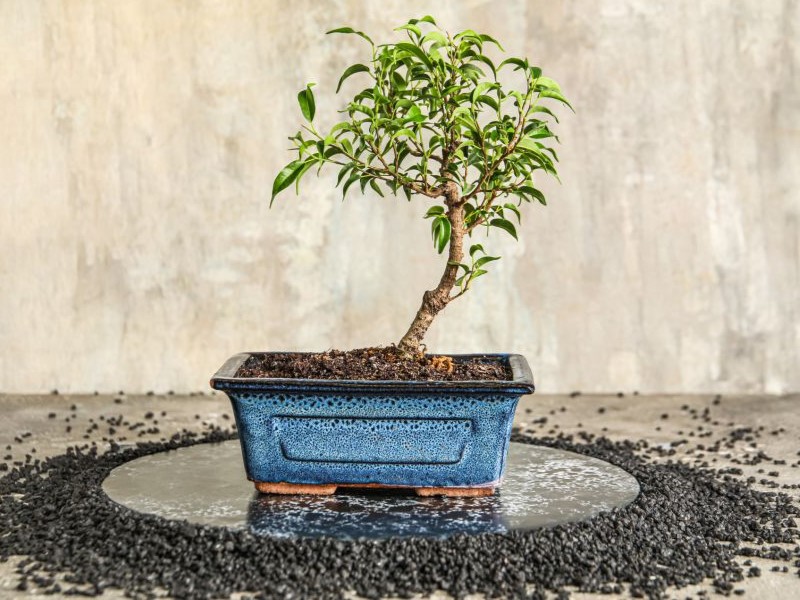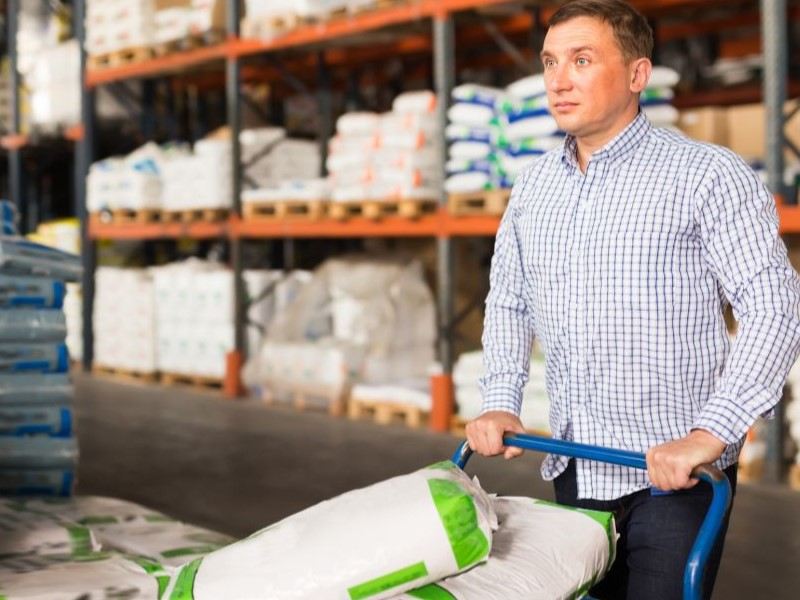Are you looking to enhance the well-being of your cherished bonsai? The path begins with a fundamental choice: where to buy bonsai soil. This buying guide simplifies the process, offering practical insights without unnecessary complications. Selecting the suitable soil is crucial for the health and growth of your bonsai trees, influencing their root development, water retention, and overall vitality.
Let’s go through this essential decision together, exploring reliable sources for bonsai soil that ensure your miniature trees flourish!
Characteristics of Ideal Bonsai Soil

Choosing suitable soil for your starter bonsai involves understanding the key characteristics that contribute to the health and vitality of your miniature trees. Let’s delve into the essential traits of an ideal bonsai soil:
Adequate Drainage
Bonsai trees dislike soggy roots. The ideal soil drains water efficiently, preventing overwatering and ensuring roots receive the necessary oxygen. It’s akin to finding the perfect balance—moisture retention without waterlogged conditions.
In addition, you can add peat moss plays a relevant role in bonsai soil mixes. Its moisture-retaining properties contribute to keeping water and nutrients.
Nutrient Retention
Good bonsai soil is a reservoir for essential nutrients, providing a steady supply to the roots. This characteristic promotes healthy growth and development. Think of it as a nutrient buffet, where the tree can access what it needs when it needs it.
Balanced pH Levels
The pH level of the soil is crucial for nutrient absorption. An ideal bonsai soil maintains a balanced pH, ensuring trees absorb nutrients effectively. Think of it as creating a harmonious environment that supports the tree’s nutritional needs.
Particle Size and Texture
The particles in bonsai soil should have an optimal size and texture. This encourages proper aeration and water distribution. Picture a well-maintained road—smooth, with no bumps or potholes—for your bonsai’s root system to navigate.
Inorganic Components
A good bonsai soil mix typically includes inorganic components like perlite or grit. These elements contribute to aeration and drainage while reducing compaction. Consider them as the breathability factor in your bonsai soil.
DIY Bonsai Soil vs. Pre-Packaged Options
When searching for the right soil for your bonsai, you have two primary options: creating your own DIY bonsai soil mix or opting for pre-packaged alternatives. Let’s break down the differences to help you make an informed decision.
DIY Bonsai Soil
- What it involves: You can craft a good mix by combining components such as Akadama, diatomaceous earth, pumice, calcined clay, and lava rock, or just use them as stand-alone soils.
- Benefits: You have control over the ingredients, allowing you to tailor the mix to your specific tree species and environmental conditions.
- Considerations: It requires time and effort to source and mix the components. It’s like preparing a personalized and unique recipe tailored to your bonsai’s taste.
Pre-Packaged Options
- What it involves: Purchasing ready-to-use or all-purpose bonsai soil mixes, often formulated to provide a balanced blend of essential components.
- Benefits: Convenient and time-saving. Pre-made mixes are designed to meet the general needs of most bonsai trees.
- Considerations: It may not be as customizable as a DIY mix. It’s like opting for a meal deal—it’s quick, easy, and gets the job done without needing individual ingredients.
Tips to Consider
- Understanding Your Tree: Consider the specific needs of your bonsai species. Some trees thrive in well-draining soil, while others may prefer a mix with more moisture retention.
- Experimentation: Feel free to experiment with DIY mixes if you enjoy the hands-on approach. Adjust the components based on how your bonsai responds.
- Cost and Convenience: Assess your available time and budget. DIY may be more cost-effective, but pre-packaged options can save time and effort.
Where To Buy Bonsai Soil

Local garden centers can be a valuable resource when looking for bonsai soil. These centers are like neighborhood hubs for all things green, offering various soil options for your bonsai. One significant advantage is the convenience—they’re often just around the corner. You can find bonsai soil mixes suitable for different tree types at these centers. Additionally, staff members are usually knowledgeable and can provide guidance based on your specific needs. It’s akin to having a friendly neighbor who knows something about gardening and is ready to offer helpful advice.
Online retailers can also be a go-to solution for finding bonsai soil without leaving the comfort of your home. These digital stores offer diverse bonsai soil mixes, providing the convenience of browsing and purchasing from anywhere with an internet connection. It’s like having a virtual garden center at your fingertips. One notable advantage is the extensive variety available, catering to different bonsai species and preferences.
Shopping online for bonsai soil also allows you to read reviews from fellow enthusiasts, giving you insights into the experiences of others before making a decision. Some well-known online sellers for bonsai soil include Amazon, Bonsai Outlet, Brussel’s Bonsai, and Eastern Leaf. Whether you prefer a general online marketplace or specialized bonsai retailers, exploring these options can offer a convenient and accessible way to find the perfect soil for your miniature trees.
Note: Consider factors like shipping costs and delivery times, as they may vary between online retailers.
Specialty Bonsai Shops
For those looking for a more personalized touch in their bonsai soil selection, specialty bonsai shops are a noteworthy option. These stores cater to bonsai enthusiasts, offering various soil blends and expert guidance. Picture it as stepping into a boutique where the expertise of the staff is as crucial as the products on display.
One of the critical advantages of specialty bonsai shops lies in their offering of unique soil blends.
These blends ensure your miniature tree receives the nutrients essential for its growth and vitality because they are tailored for specific bonsai species. Moreover, the staff at these establishments are typically well-informed about bonsai care, providing valuable insights and advice to enhance your bonsai-keeping experience.
While products from specialty shops might come with a slightly higher price point, the investment is often justified by the unique blends and expert assistance you receive.
Bonsai Community Recommendations
Discovering the ideal bonsai soil becomes a collaborative journey within the bonsai community. Engaging with fellow enthusiasts through online forums and groups offers valuable insights and recommendations. It’s essential to friendly chat with friendly neighbors who generously share their hands-on wisdom.
In these virtual spaces, bonsai enthusiasts exchange practical advice based on their experiences, shedding light on what works well for various soil types and brands. Seeking advice from seasoned growers within the community adds more authenticity to the information. Fellow bonsai lovers often provide tree-specific insights, offering guidance tailored to the unique needs of different bonsai species.
Considerations for Different Bonsai Species
When choosing the suitable soil for your bonsai, understanding the specific needs of different bonsai species is essential. Here are considerations for soil in other species:
1. Coniferous Evergreen Bonsai
- Characteristic: These bonsai, including Pines and Junipers, thrive with needle-like leaves all year round.
- Soil Preference: Opt for well-draining soil to ensure adequate aeration for the shallow root systems typical of coniferous evergreen bonsai. Combine Akadama, crushed lava rock, and Turface for well-draining soil. Include a small amount of pine bark fines or coconut coir for balanced aeration.
2. Deciduous Bonsai
- Characteristic: Deciduous bonsai, such as Maples and Elms, shed their leaves in the fall and go through dormancy.
- Soil Preference: Choose a soil mix that maintains balanced moisture levels, preventing excessive dryness or waterlogging. Blend Akadama with perlite and crushed granite for optimal drainage. Add pine bark fines or compost for organic matter and improved structure.
3. Broadleaf Evergreen Bonsai
- Characteristic: These bonsai, like Azaleas, Fukien tea, and Boxwoods, retain their leaves throughout the year.
- Soil Preference: Opt for nutrient-rich soil to support the continuous growth of foliage and maintain vibrant greenery. Mix Akadama with sphagnum moss and perlite for moisture retention and aeration. Incorporate a small amount of pine bark fines or aged compost for nutrients.
Eco-Friendly and Sustainable Options
There are also eco-friendly and sustainable options that benefit your miniature trees and contribute positively to the environment. Opting for organic and locally sourced soil materials is a simple yet impactful choice. These materials, such as compost and coconut coir, provide essential nutrients to your bonsai collection and support sustainability by reducing the environmental impact associated with transportation.
Additionally, considering soil conservation practices, like using mulch or pine bark fines to retain moisture and minimize water usage, aligns with eco-friendly principles. Making these choices sustainably nurtures your bonsai and reflects a mindful approach to caring for nature.
Conclusion
Now armed with insights into considerations for different bonsai species and eco-friendly options, the question remains: where to buy bonsai soil? Fortunately, there are various accessible avenues. Local garden centers, online retailers like Amazon and Bonsai Outlet, specialty bonsai shops, and community recommendations provide diverse options. Whether you’re looking for specific blends for deciduous, evergreen, or broadleaf varieties, these sources offer a range of choices to suit your bonsai’s unique needs.
Finding suitable soil is not just about the product but the knowledge gained along the way. By making informed choices, considering your bonsai’s requirements, and exploring sustainable options, you nurture your miniature trees and contribute to the environment’s well-being.
Happy bonsai gardening!






0 Comments